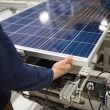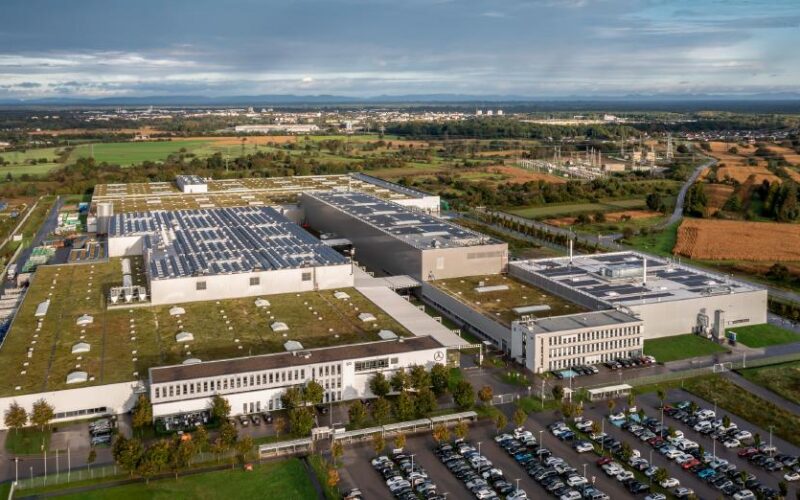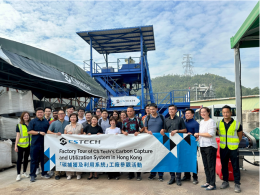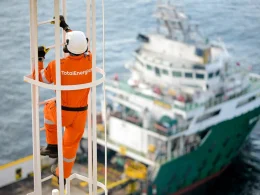Mercedes-Benz has launched Europe’s first battery recycling plant that uses an integrated mechanical-hydrometallurgical process, located in Kuppenheim, southern Germany. The facility, which aims for a recovery rate of over 96% and net carbon-neutral operation, marks a significant step towards raw material sustainability and a circular economy. As the first in-house facility by an automotive manufacturer, it aims to enhance resource sustainability and reduce reliance on primary materials.
The plant is designed to generate enough recycled materials to produce more than 50,000 new battery modules annually, contributing to Germany’s battery value chain. The facility’s development is backed by a multi-million-euro investment from Mercedes-Benz, with support from the German Federal Ministry for Economic Affairs and Climate Action. It operates with 100% green electricity and incorporates photovoltaic systems, further emphasising Mercedes-Benz’s commitment to sustainability.
In collaboration with Primobius—a joint venture between German engineering company SMS group and Australian process developer Neometals—the recycling plant covers the entire process chain, from shredding battery modules to separating active materials like lithium, nickel, and cobalt. The partnership also includes a scientific research project with three German universities, focusing on logistics and reintegration concepts. This initiative aims to scale the battery recycling industry across Germany, setting a precedent for future advancements.
The facility employs an advanced hydrometallurgical process that operates at temperatures of up to 80°C, consuming less energy than traditional pyrometallurgy methods. This approach minimises waste while extracting critical materials from the “black mass” of battery electrodes, ensuring they meet the standards required for reuse in new battery cells.
The recycling facility aligns with Mercedes-Benz’s comprehensive battery circularity strategy, which focuses on circular design, value retention, and closing the material loop. This approach extends to the Mercedes-Benz eCampus in Stuttgart, where circular principles are integrated into new battery cell development. The company’s energy division also supports second-life battery solutions for large-scale storage, maximising battery use beyond vehicle lifespans.
Jörg Burzer, Board Member of Mercedes-Benz responsible for production, emphasised the facility’s impact: “With this innovative technology, we’re turning today’s batteries into tomorrow’s sustainable mine for raw materials, thereby strengthening the Mercedes-Benz production network in Europe.” Baden-Württemberg’s Environment Minister, Thekla Walker, noted, “Mercedes-Benz has developed a sustainable approach to managing limited resources, contributing significantly to a truly circular economy.”
Federal Chancellor Olaf Scholz praised Mercedes-Benz’s pioneering approach: “The future of the automobile is electric, and batteries are an essential component of this. To produce batteries in a resource-conserving and sustainable way, recycling is also key. The circular economy is a growth engine and, at the same time, an essential building block for achieving our climate targets! I congratulate Mercedes-Benz for its courage and foresight shown by this investment in Kuppenheim. Germany remains a cutting-edge market for new and innovative technologies.”
Mercedes-Benz CEO Ola Källenius added, “Mercedes-Benz has set itself the goal of building the most desirable cars in a sustainable way. As a pioneer in automotive engineering, Europe’s first integrated mechanical-hydrometallurgical battery recycling factory marks a key milestone towards enhancing raw-materials sustainability. Together with our partners from industry and science, we are sending a strong signal of innovative strength for sustainable electric mobility and value creation in Germany and Europe.”



















